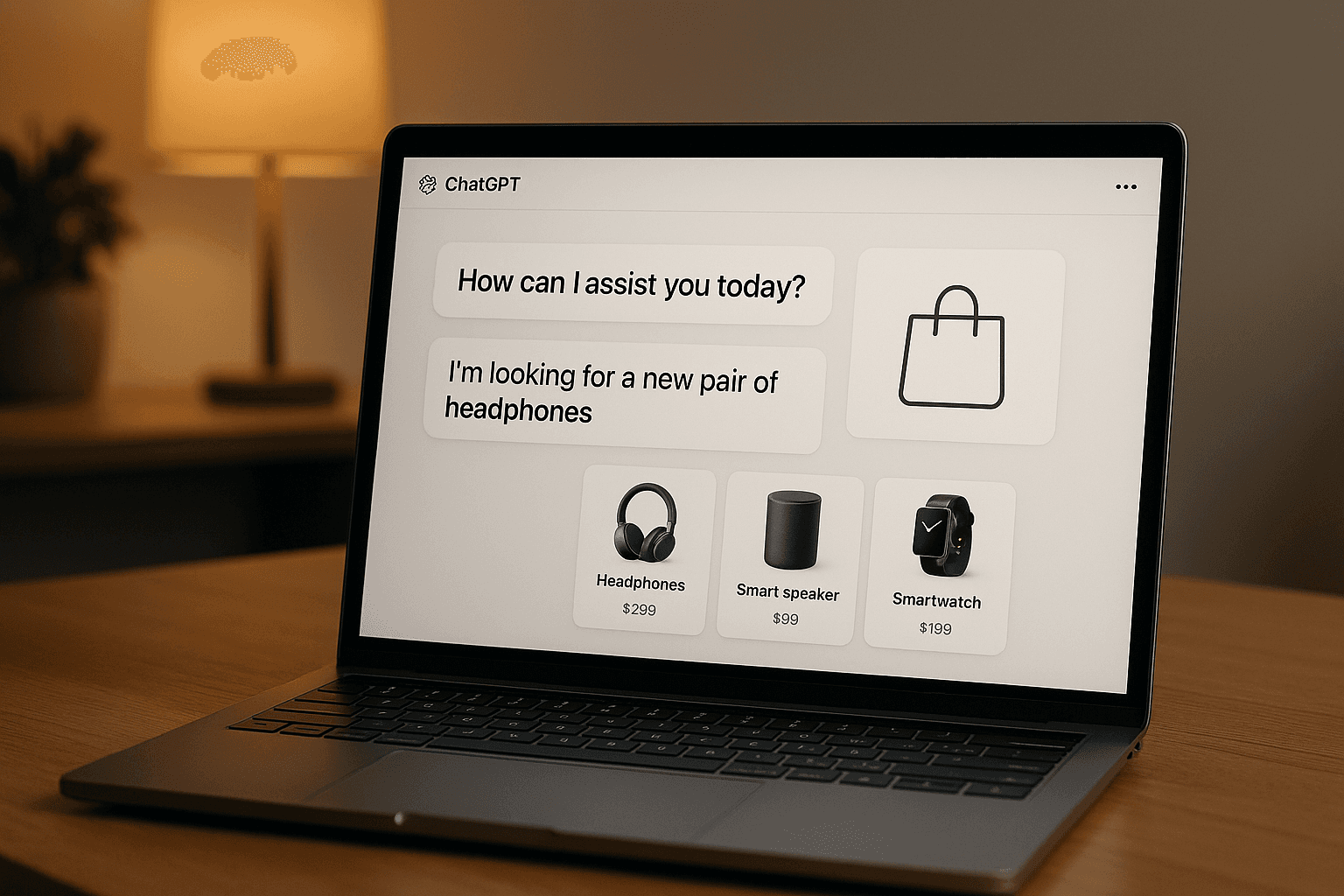OpenAI Enhances ChatGPT with Shopping Intent Features
OpenAI updates ChatGPT search with 45% fewer hallucinations, improved shopping intent detection, and better response formatting.
OpenAI has rolled out a series of significant updates to its ChatGPT platform, making strides in improving search accuracy, response formatting, and shopping intent detection. Announced on September 16, 2025, these enhancements aim to address long-standing challenges associated with AI-powered search systems while expanding the platform's commercial capabilities.
Greater Accuracy and Fewer Hallucinations
One major focus of the update is improving factual accuracy, an area that has historically hindered wider adoption of AI search systems. OpenAI claims that ChatGPT now produces "fewer hallucinations", a term used to describe AI-generated false information. The upgrade builds on the advancements introduced with GPT-5 in August 2025, which demonstrated a 45% reduction in factual errors compared to GPT-4o when web search is enabled. OpenAI described this milestone as a "technical achievement" to meet the expectations of both individual and enterprise users.
The company cited ongoing research into why AI models sometimes produce inaccurate results. According to findings released by OpenAI in September, the probabilistic nature of word prediction and current testing methods that favor confident guesses contribute to the phenomenon, making complete elimination of hallucinations an inherent challenge.
Smarter Shopping Intent Detection
A key feature of the update is ChatGPT's improved ability to recognize shopping-related queries. The platform can now better distinguish between users seeking product recommendations and those looking for general information. OpenAI explained, "Search is better at detecting shopping intent, showing products when you want them and keeping results focused when you don't."
This enhancement is expected to reduce the need for users to refine their queries multiple times and aligns with the platform’s growing role in e-commerce interactions. With over 1 billion weekly searches now conducted on ChatGPT, this capability has substantial commercial implications, offering marketers and retailers opportunities to fine-tune product visibility strategies.
Enhanced Response Formatting
OpenAI has also overhauled how search results are presented to users. Responses are now formatted for quicker understanding while maintaining detailed information. According to OpenAI, the updates ensure "answers better formatted for quick understanding without losing detail or quality." This change addresses feedback from users who found previous response structures less intuitive, particularly when simple queries triggered lengthy chains of reasoning.
Competition and Market Context
The improvements come at a time of growing competition among AI-driven search platforms. Traditional search giants, such as Google, continue integrating AI into their systems. For instance, Google introduced "AI Mode" to UK users in July 2025, maintaining its dominance with 41.9% of total web traffic, compared to ChatGPT's 0.19%, as per August 2025 data from Ahrefs. However, ChatGPT has shown a promising growth trajectory, with monthly usage increasing at 5.3% compared to Google's 1.4%.
Despite its smaller market share, ChatGPT has demonstrated measurable impacts on content discovery and browsing behaviors. Between January 2024 and May 2025, news-related prompts on the platform surged by 212%, and ChatGPT referrals to news publishers increased 25-fold over the same period. Such trends have prompted predictions that ChatGPT could rival traditional search engines in traffic volume by 2030.
Implications for E-Commerce and Marketing
The ability to accurately detect shopping intent underscores OpenAI's push toward commercial applications. As AI search adoption grows, research has shown that visitors from AI-powered search platforms convert at 4.4 times higher rates than users from traditional organic search traffic. These updates could enable businesses to refine their approaches to AI-based search optimization, particularly in aligning product recommendations with user intent.
Additionally, OpenAI's decision to make these updates universally available across free and paid ChatGPT tiers ensures all users benefit from the improved functionality. This inclusive approach contrasts with competitors who often restrict new features to premium subscribers, potentially accelerating ChatGPT’s adoption rate.
Looking Ahead
With the September updates, OpenAI has laid the groundwork for expanded commercial and enterprise applications of ChatGPT. The advancements in factuality, shopping intent recognition, and response formatting are iterative steps toward a more seamless and reliable user experience. While challenges such as hallucinations persist, these enhancements reflect ongoing efforts to address user feedback and meet evolving demands in AI-based search interactions.
As competition intensifies, platforms like ChatGPT are redefining how users interact with search engines, compressing traditional customer journeys and creating new avenues for engagement in the digital landscape. By continuing to refine its technology, OpenAI positions itself as a leader in the rapidly transforming field of conversational AI.
Geoffrey G.










